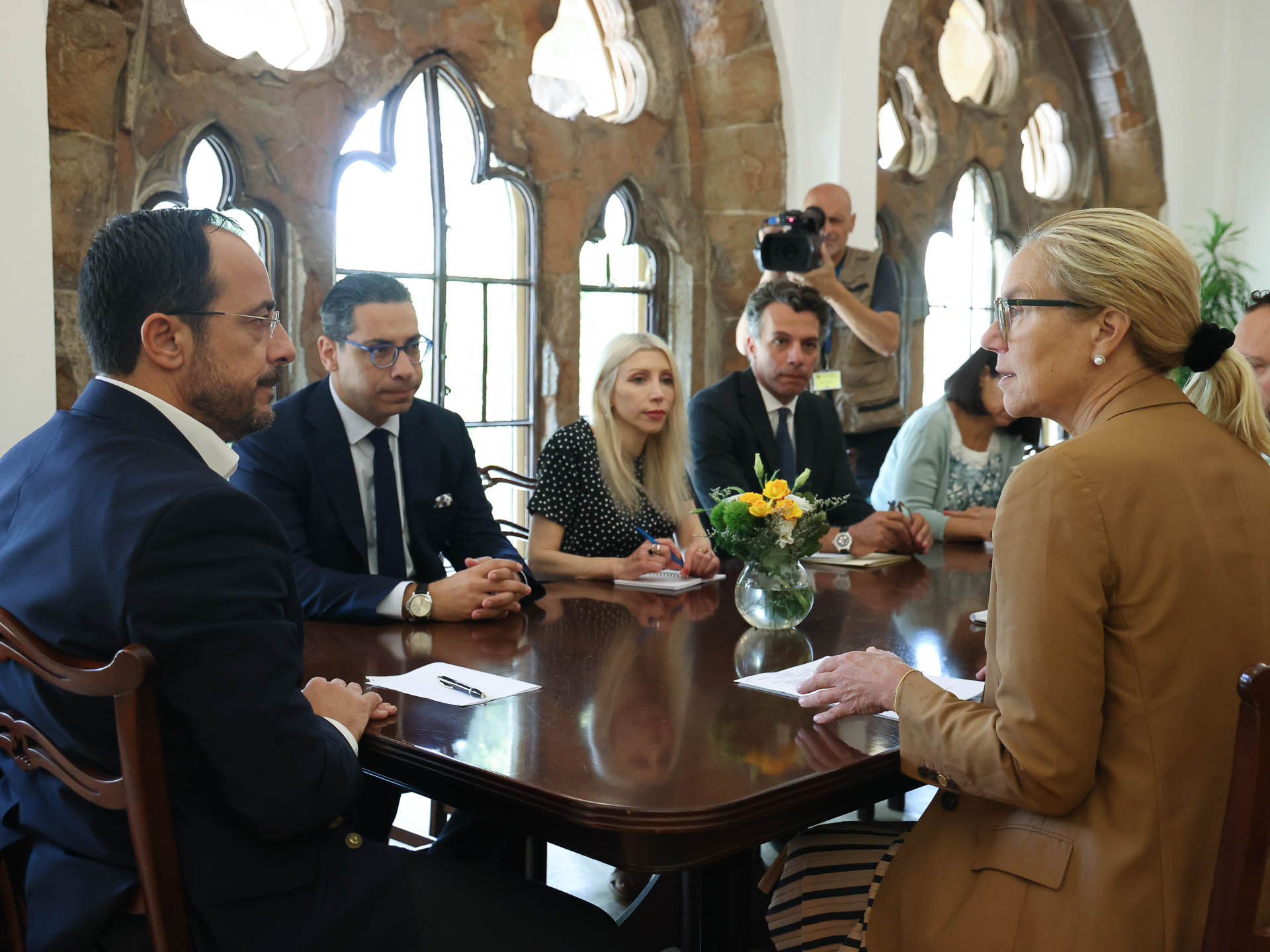The situation in Gaza “can only get worse”, United Nations senior humanitarian and reconstruction coordinator for Gaza Sigrid Kaag told Cypriot Foreign Minister Constantinos Kombos on Friday.
Kaag met with Kombos and Cypriot President Nikos Christodoulides on Friday, with Kombos saying he had been informed that the situation in Gaza is “tragic”.
“It is a situation which can only get worse based on what they see, and in this, the Republic of Cyprus with allied countries which are cooperating with us in this project, is doing something which has an impact,” he said.
He said that having an ameliorating impact on the humanitarian situation in Gaza is “the most important thing”, saying it “goes beyond the political benefits which of course arise for our country.”
He said he and Christodoulides had discussed with Kaag the evolution of the humanitarian situation in Gaza, as well as efforts towards a peace process and the flow of humanitarian aid into Gaza from outside.
He added that they had also discussed operational issues related to the humanitarian aid corridor, and ways through which the list of permitted products which can be sent into Gaza can be expanded.
In addition, he said, issues related to the frequency of shipments and issues related to the distribution of aid once it arrives in Gaza were also discussed.
He also touched on the matter of the temporary jetty which had been placed off the coast of Gaza, but then had to be removed after breaking apart in high winds last month.
He said he has been informed that “within the next few days, within the weekend at the latest, repairs to the jetty will be completed, and that it will then once again be placed off the coast of Gaza.
He added that the sending of aid from Cyprus has “not been affected” by the jetty’s breaking as it is possible for aid to be stored at sea off the coast of Gaza.
However, he said the effort to send humanitarian aid into Gaza “will continue when the jetty is ready in the next few days”, with the unloading of the aid which is currently being stored at sea able to begin immediately thereafter.
He added that the jetty is a “complex project which requires significant maintenance efforts.”
“It is naturally affected by the weather, and it is also naturally affected by what is happening on the ground, so it is not surprising that there are some issues,” he said.
His words were echoed by Pentagon spokeswoman Sabrina Singh, who had said on Thursday that the United States government is “hoping that we will be able to re-anchor the jetty into Gaza later at the end of this week.”
When the jetty is re-anchored, Singh said, “we expect aid to flow pretty immediately” into Gaza.
She also was keen to point out that the US government’s latest cost assessment of the temporary jetty stands at approximately $230 million (€213m), $90m short of the initially estimated cost of $320m.
She explained that lower than expected costs for contracted lorries, drivers, and commercial vessels, and the fact that the United Kingdom contributed a berthing vessel, helped to lower the total cost of the project.
Kombos on Friday was keen to point out the importance of the US’ interest in Cyprus’ Amalthea corridor, saying, “this is not something we should just gloss over, because we have now reached a point where the operational dimension of the Amalthea plan is treated as if it were something normal.”
He said that when the plan was in its infancy, discussions were had about whether any ship would be able to depart from Cyprus and take humanitarian aid with it.
“Now, this has become a part of everyday life. This is quite important. Eight ships departed last week, so it is a project which has rates which are increasing, and the goal is to increase even more, because the needs are huge,” he said.
He added that the Cypriot government is now discussing “what our role will be when the time of restructuring comes because there is no longer normality in terms of infrastructure in Gaza.”
“It will be a huge project, which will be the main factor for the following part,” he said, adding that Cyprus’ support for a two-state solution “is known”.
He had said on Monday that a two-state solution is the “only viable political option” in Israel-Palestine and added that Cyprus is “unequivocally against” the displacement of Palestinians.
“Cyprus rejects in absolute terms the displacement of Palestinians in Gaza,” he said, adding that “anyone who states otherwise is deliberately ignoring the historical reality of Cyprus, which, for reasons obvious to everyone, would be the last country in the world which would contribute in any way to the displacement of even one Palestinian.”







Click here to change your cookie preferences